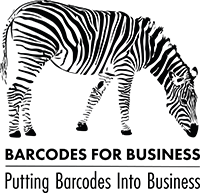Retail Labels
Retail Labels
Barcodes for Business can produce bespoke labels for your business. We can offer a full digital colour printing service or simply pre-print barcodes for you. Alternatively we can provide you the full range or equipment to print your own labels in house. We would then simply supply you the plain labels to print in house. Our experts are here to help and answer any questions you may have 01491 810 101 or email [email protected]
Our bespoke range of labels can be private labels or they can be to the GS1 standard retail codes. Barcodes for Business have been helping customers produce labels for over 30 years and will continue to do so. If you have any further questions, please call sales 01494 810 101. Below is an overview on both types of barcode label.
What is a private label?
A private label product is one that a retailer gets produced by a third-party but sells under its own brand name. The retailer controls everything about the product or products. That includes the specs of the product, how it’s packaged, and everything else besides.
Private label products are then delivered to the retailer to sell. As far as consumers are concerned, they’re the company’s ‘own brand’ products. For instance, a small seller of computer software might launch a private label line of computer hardware. Those products would get manufactured by another firm. They’d get sold, though, under the initial business’s brand name.
Most consumer product categories include both branded and private label lines. The following are some examples of sectors where private labelling is most prevalent:
- Grooming & Personal Care – Nail salons, hairdressers, and other establishments may sell private label nail polish, shampoo, etc.
- Food & Beverage – Grocery store’s own brand condiments, sauces, etc.
- Clothing – High street clothing stores often sell their own lines alongside branded alternatives.
- Pet Food & Accessories – Pet stores selling food, toys, and more with their own branding.
Advantages of Private Labels
The practice holds an array of advantages for retailers, big or small. The following are four of the most notable:
1. Adaptability.
Some retailers depend on suppliers for all their products. As such, they rely on them to react to market demand. If consumers start to desire new lines or new features, it’s the suppliers who must adapt their offerings. This can be a slow process.
When a retailer gets private label products manufactured, they can be more agile. They can react more swiftly if they notice a shift in customer behaviour. With a quick phone call, they can tell a manufacturer to tweak the product accordingly.
2. Control over production.
It’s not only when rapid adaptation is required that retailers have greater power. Another advantage of private labelling is that it gives more control over production.
The retailer instructs the manufacturer on all aspects of a private label product. They can define ingredients or components. They can insist upon precise specs, down to things as fundamental as a product’s colour or shape.
3. Control over pricing.
With private labelling, retailers are in charge of the entire supply chain. They set and control production costs to ensure the most profitable pricing. Products get made in a way that makes sure of the healthiest ultimate margins.
4. Control over branding.
The issue with selling branded products is that it’s not your company which consumers come to love. They develop loyalty to the makers of their favourite items, not the distributors. Private label products and their packaging bear your own name and branding.
Disadvantage of Private Labels
Nothing’s ever cut and dried in ecom merce or retail. While private labelling has lots of pros, there’s also one significant potential con.
1. Difficulty building brand loyalty.
Putting your branding on products is an excellent idea in theory. In practice, however, it can be a struggle to build significant brand loyalty. Your private label lines, after all, often compete with established names in a niche.
Those long-lived brands hold some significant advantages over your private label lines. They’re going to be available in a broader range of stores, for one thing. Your private label products will be on your shelves alone. National or multinational brands, too, have a far greater budget to use on promoting their products.
GS1 standards help you deliver a seamless customer experience in today’s challenging retail environment
The retail landscape is always changing. Today, whether you’re a retailer or a brand, you’re faced with multiple challenges – the rapid growth in online and mobile shopping, ever greater competition, downward cost pressures, lower margins and customers who are less loyal than ever before.
To counter this, you need to create a seamless customer experience – in-store and online – to win the hearts and minds of your customers, and to drive sales. You must ensure your products are always available, across all channels. And you must provide consistent and accurate product data that your customers can find and trust.
By building on the globally accepted principles of unique identification and trusted data, GS1 standards provide the platform for retailers and brands to build harmonised processes and operations that enable your customer expectations to be exceeded.
Which is why we facilitate and enable collaboration between retailers and brands – so you can all benefit from GS1 standards that help deliver better choice, better service and a better experience for your customers, however they choose to shop.
How we support the retail industry?

Grocery
Providing the foundation for effective retail grocery operations

Apparel, footwear and accessories
Standards that fit, now and tomorrow

Selling online
Helping small businesses grow online

Beauty
Standards that create confidence in your global supply chain

Food Service and wholesale
Setting new standards in the foodservice industry

Music
Providing unique support for the music industry
For More information on GS1 Barcodes or more help please email [email protected]
